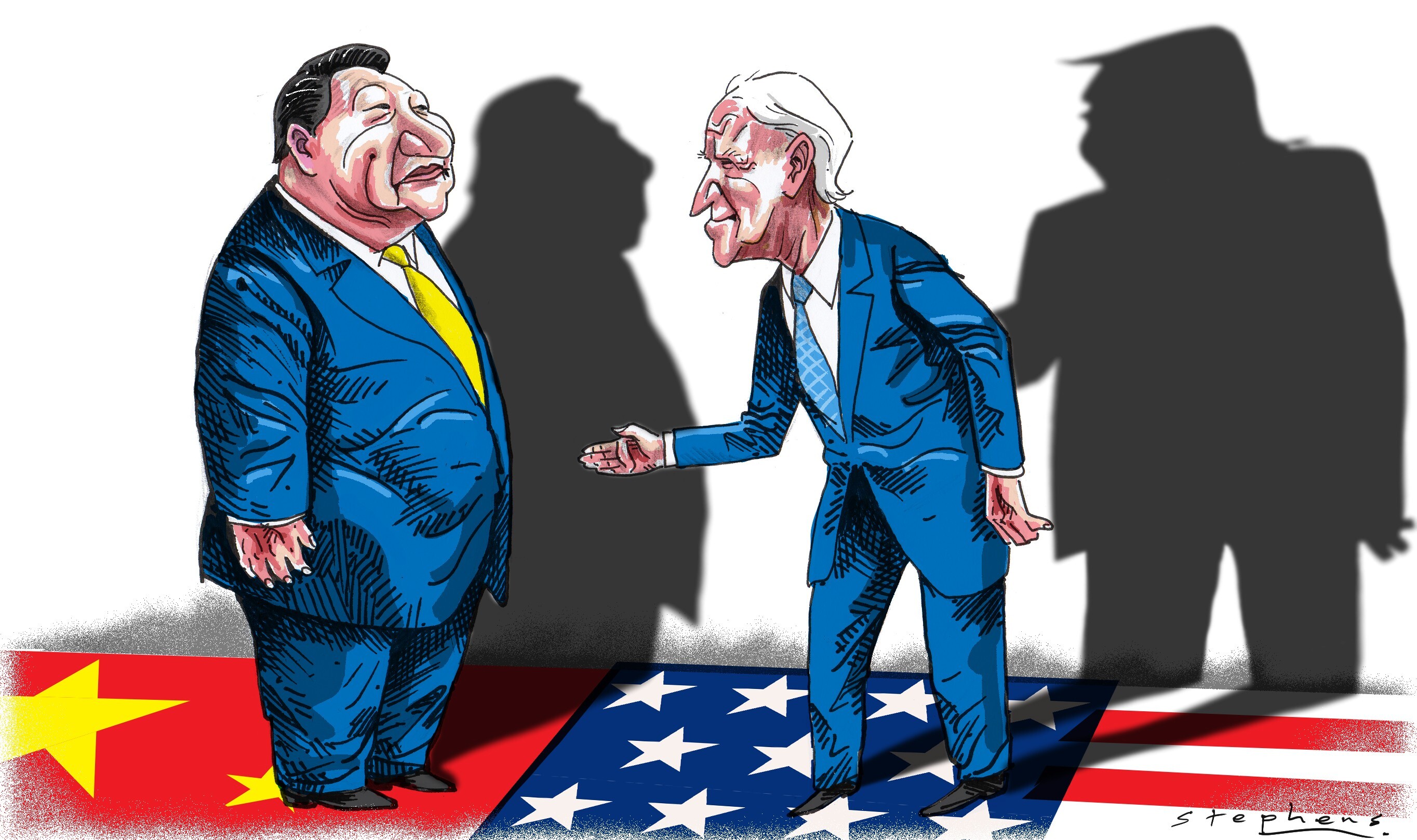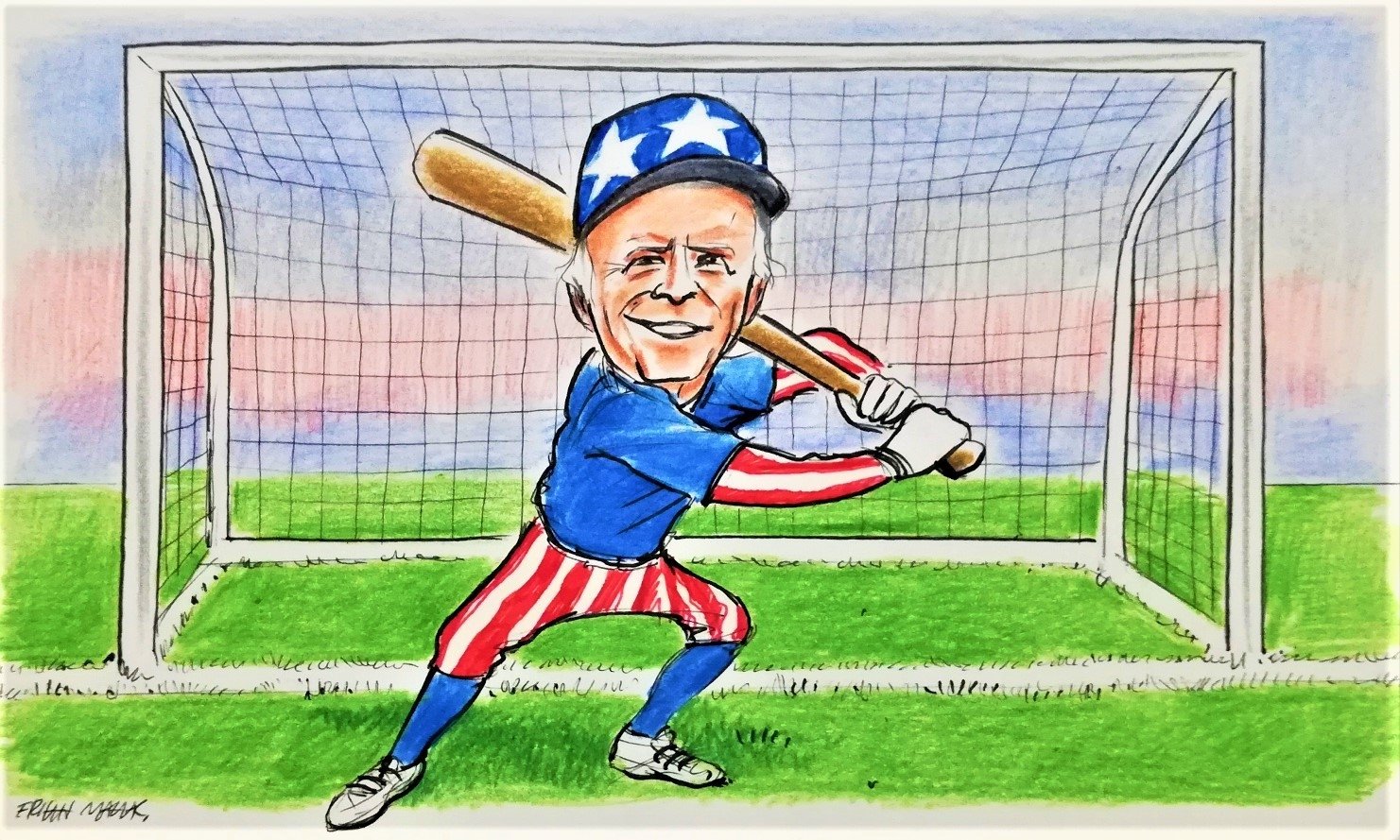
Chinese Experts’ Analysis of US-China Relations during Biden Administration
(China) on 19 December 2020
by Su Mu (link to original)
The majority of experts believe that after Joe Biden's administration takes office, the unpredictability of U.S.-China relations will decline, and the extremism, abysmal depth to which relations have sunk, and risk of sudden attack contained in the United States' China policy will decrease. The two countries will welcome the opportunity for mitigation, acknowledgment and cooperation.
Of course, the Biden administration will not be able to launch a China policy very quickly. Scholars have drawn an analogy between Biden's attitude toward China and the world and coming to a stoplight when driving: First look, slow down, then continue driving. Looking first refers to Donald Trump's use of Twitter-style extreme pressure coupled with dangerous uncertainty. Biden will not employ Twitter for this or use such extreme pressure; first he needs time to make a judgment. Slowing down refers to acting differently than Trump, who makes up his mind one day and does something else the next. The reason is that Biden is a mainstream leader who follows procedure. If he wants to act, he consults with government agencies and Congress if necessary. He takes actions that are low cost, high profit and produce considerable results. Continuing to drive, looking first and slowing down are all meant to lead the world once again. Of course, this process contains three steps: mending the fissures in the country, opening pathways for action, including pathways with Congress, the fierce Democratic Party faction, and the Republican opposition. Under these circumstances, the world will endure a period of reprieve, in which the U.S. will diminish its attacks on China, giving U.S.-China relations a window of time to make improvements.
Another common opinion is that after Biden takes office, United States China strategy will not undergo any fundamental changes, and the U.S. will still view China as its main competitor. There are four main reasons for this. First, China's strategic goal is national rejuvenation, and the U.S. is a "mountain" which does not allow others to pass. Second, Trump won 74 million votes, does not acknowledge his loss, and has led a movement to protest the election results, inciting anti-Biden sentiment, creating a legacy of “Trumpism,” and negatively impacting Biden's China policy. Third, Biden's diplomatic team is mostly young and strong, around 40 to 50 years old, and this new generation of American diplomats is unwilling to give China a chance. Fourth, American foreign policy is powered by two engines: American national interests and American values. The Trump era only valued American interests, but disregarded American values. After Biden takes office, American values in China policy will be revived. Thus, U.S.-China relations and even the environment outside of China, will face more severe and complex challenges.
There are also experts who think that Biden might change his methods in order to accomplish things that Trump was unable to achieve. Based on data from Biden's time as vice president, China's gross domestic product was just over $4 trillion, and now it has reached $14.4 trillion. This year, China's GDP might reach 75% of the United States’ GDP. Biden knows that he cannot use the same strategy with China he used as vice president, and also knows that Trump's approach was damaging to the U.S., so Biden will modify his policy to do what Trump failed to do, that is, to prevent China's rise.
Experts generally believe that from a strategic perspective, U.S.-China relations have an opportunity to change. Biden has stated that on his first day as president, he will bring the U.S. back into the Paris climate agreement. China has also made a commitment to carbon neutrality, so Biden will cooperate with China in this respect. Furthermore, with respect to the World Health Organization, there will be an increasing amount of opportunity for U.S.-China cooperation. Issues involving the Korean Peninsula, the Iran nuclear problem, nuclear security, energy security and other matters will also provide opportunity for cooperation. With plenty of issues facing America both domestically and abroad, there will be some strategic cooperation with China. In short, there will be some changes on a tactical level, and they will be positive.
Some commentators have pointed out that U.S.-China relations are in an uncertain stable period. The uncertainty is technical. First, the new administration will replace existing government officials such as the secretary of state and National Security Council director. Second, after Biden has formed his Cabinet, there will be policy reviews, which will require about six months. Stability will occur because in the past year, U.S.-China interests have suffered great losses, with both sides feeling great pressure and the need to converge. Thus, after Biden takes office, there will be an intermittent period in which the U.S. will be able to take a breath and China will be able to cool off. This period may require one to 1 1/2 years.
As for the future of U.S.-China relations, there are experts who think that uncertainty will remain. First, neither the U.S. nor China will change its strategic goals or policies. After the transition period, will these continue to collide? Second, it is uncertain as to how both sides will interact if they remain strategically unyielding. If they interact as they have in the past, then the period of uncertainty will only be a transition period before the U.S. and China continue their conflict, possibly exacerbating. If both sides are able to interact sensibly following this period, U.S.-China relations will improve.
As pointed out in the forum, the value to China of U.S.-China relations far surpasses the value to the U.S. Basically, as long as there is a 1% chance of improvement in U.S.-China relations, China will put in 100% of its effort and hope for success. The U.S. should also follow in this direction.

